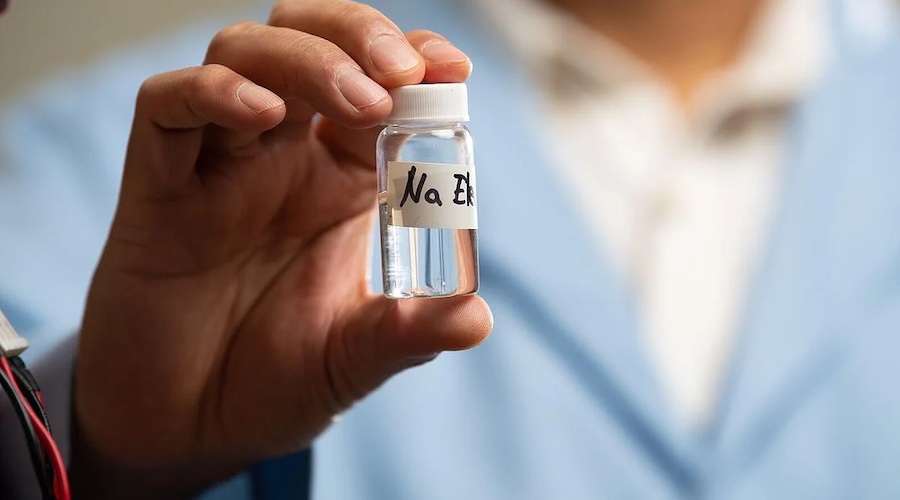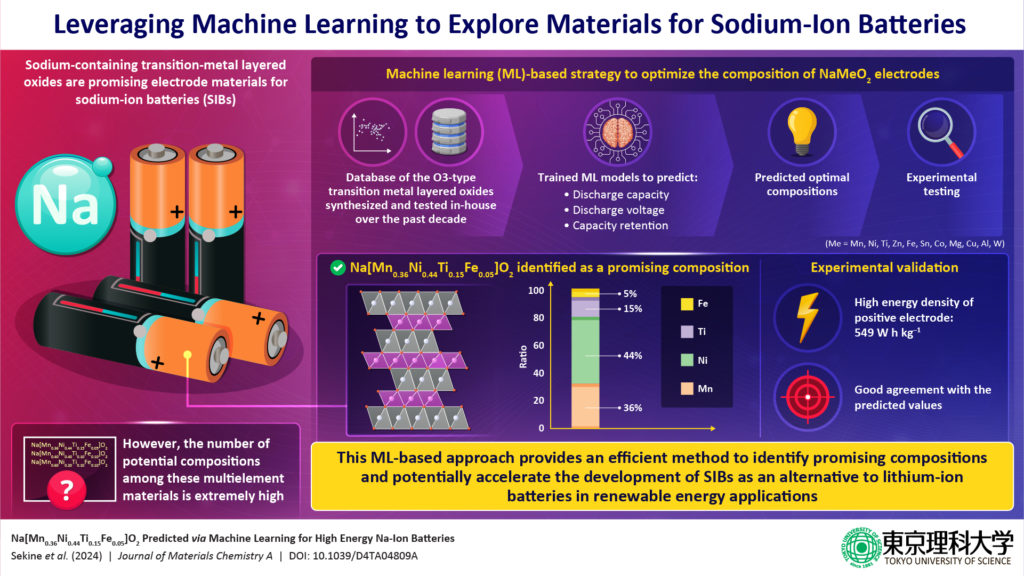Japanese scientists use AI to boost sodium-ion battery density

Researchers from the Tokyo University of Science (TUS) have introduced a machine learning-driven approach to develop high-efficiency sodium-ion batteries.
Led by Professor Shinichi Komaba, the team aimed to improve energy density in sodium-ion batteries, a critical goal for creating affordable, sustainable energy storage solutions.
Sodium-ion batteries have existed for a long time, but their large-scale development was halted in favour of lithium-ion batteries. The technology is now being reconsidered.
Unlike lithium-ion batteries, sodium-ion batteries use widely available materials, making them an attractive option for applications in renewable energy and electric vehicles (EVs).
Sodium, found in rock salts and brines, holds promise for energy storage and EVs due to its lower cost and greater availability compared to lithium, which currently dominates the battery market.
Despite its chemical and structural similarities to lithium, sodium is not yet widely used, partly because lithium cells offer better range and performance in similar sizes.
The research focused on designing sodium-based layered oxides, exploring a range of metal combinations to achieve optimal battery performance. By training a machine learning model on experimental data, the team successfully identified an effective metal ratio that includes manganese, nickel, titanium, and iron.

This innovative process allows for a faster, data-driven path to developing viable battery materials, reducing the time and cost associated with traditional trial-and-error methods. The findings, published online in the Journal of Materials Chemistry A, mark a significant step toward more accessible energy storage solutions, leveraging sodium’s abundance as an alternative to lithium.
“The successful applications of machine learning in battery research can serve as a template for material development in other fields, potentially accelerating innovation across the broader materials science landscape,” Komaba said in the statement.
The authors believe this strategy could accelerate the development of next-generation batteries, which have the potential to revolutionize energy storage technologies across the board. This includes renewable energy generation and electric or hybrid vehicles and also consumer electronics such as laptops and smartphones.
{{ commodity.name }}
{{ post.title }}
{{ post.date }}




Comments